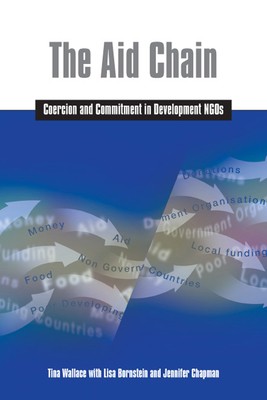
- We will send in 10–14 business days.
- Author: Tina Wallace
- Publisher: Practical Action Publishing
- ISBN-10: 1853396265
- ISBN-13: 9781853396267
- Format: 16.2 x 23.5 x 1.4 cm, minkšti viršeliai
- Language: English
- SAVE -10% with code: EXTRA
Reviews
Description
The Aid Chain explores the role of funding conditions in shaping co-operation and resistance as aid moves from donors, to NGOs, to local communities. Significant proportions of aid flow through the non-governmental sector but questions are increasingly being asked about the role of NGOs and whether they can deliver on their ambitious claims. This study examines whether the existing aid processes widely used by donors and NGOs are effective in tackling poverty and exclusion. Findings from fieldwork in Uganda, South Africa and the UK are used to show how the fast changing aid sector has, in the context of a dynamic policy environment, encouraged the mainstreaming of a managerial approach that does not admit of any analysis of power relations or cultural diversity. This increasing definition of the roles of NGOs as essentially technical, limits the extent of the very development that the organizations were initially established to promote.
EXTRA 10 % discount with code: EXTRA
The promotion ends in 22d.06:58:58
The discount code is valid when purchasing from 10 €. Discounts do not stack.
- Author: Tina Wallace
- Publisher: Practical Action Publishing
- ISBN-10: 1853396265
- ISBN-13: 9781853396267
- Format: 16.2 x 23.5 x 1.4 cm, minkšti viršeliai
- Language: English English
The Aid Chain explores the role of funding conditions in shaping co-operation and resistance as aid moves from donors, to NGOs, to local communities. Significant proportions of aid flow through the non-governmental sector but questions are increasingly being asked about the role of NGOs and whether they can deliver on their ambitious claims. This study examines whether the existing aid processes widely used by donors and NGOs are effective in tackling poverty and exclusion. Findings from fieldwork in Uganda, South Africa and the UK are used to show how the fast changing aid sector has, in the context of a dynamic policy environment, encouraged the mainstreaming of a managerial approach that does not admit of any analysis of power relations or cultural diversity. This increasing definition of the roles of NGOs as essentially technical, limits the extent of the very development that the organizations were initially established to promote.


Reviews